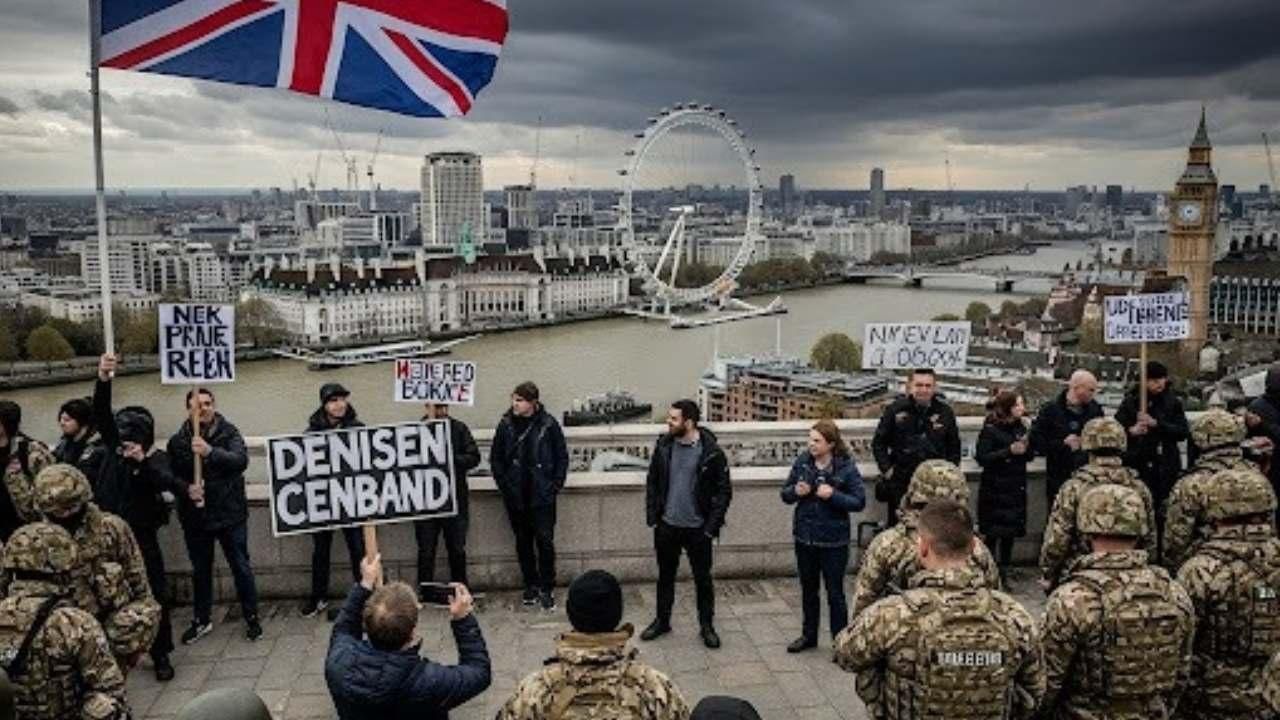White House officials confirm that President Trump has a plan to attack Iran, awaiting only his final command. This revelation sends shockwaves across the globe, not least in the United Kingdom, where the question of aligning with the US looms large. As Attorney General Richard Hermer reportedly warns against the legality and prudence of British involvement, a deep dive into the potential ramifications for the UK if it were to join such a conflict reveals a grim outlook for its social fabric, economic stability, and international standing.
The Economic Tsunami: A Nation Undone
Should the UK join the US in a war against Iran, the economic fallout would be nothing short of catastrophic. Britain, already grappling with an ailing economy, a persistent cost-of-living crisis, and some of the highest energy costs in Western Europe, is ill-equipped to absorb such a shock.
Any military action in the Middle East would inevitably disrupt global oil and gas supplies, sending prices skyrocketing. Iran is a major oil producer, and a significant portion of the world's oil consumption flows through the Strait of Hormuz. For the UK, heavily reliant on global energy markets, this would translate into unprecedented increases in petrol, gas, and electricity prices, crippling businesses and pushing more households into fuel poverty. The energy crisis seen after Russia's invasion of Ukraine would likely pale in comparison. Beyond energy, critical international shipping lanes, including the Suez Canal, would face severe disruption. This would impact supply chains across all sectors, leading to shortages of goods, further inflation, and a potential recession. Businesses would struggle, leading to widespread job losses and a significant downturn in economic activity. Furthermore, direct military involvement would necessitate a dramatic increase in defence spending, diverting crucial funds from public services like the NHS, education, and social welfare, exacerbating existing pressures and leading to cuts that directly impact ordinary citizens. The nation's debt would swell, and recovery would be a long and arduous process. Lastly, a nation embroiled in a protracted and costly conflict would deter foreign investment, further stifling economic growth and innovation. The UK's financial markets would face extreme volatility and a potential flight of capital.
Social Scarring: A Fractured Society
The social consequences of war are profound and long-lasting, and a conflict with Iran would inflict deep wounds on British society. Any military involvement would inevitably lead to casualties among British service personnel. The emotional toll on families and communities would be immense, and the long-term mental and physical health challenges for returning veterans would place significant strain on public services. Engaging in a military conflict in the Middle East could also fuel resentment and radicalisation within certain segments of the population, potentially leading to increased domestic security threats and social division. The UK has a diverse population, and a war perceived as unjust or disproportionate could create deep societal rifts. The government's decision to join a potentially illegal war, especially against the advice of its Attorney General, could erode public trust in political institutions and the rule of law. Historically, periods of conflict have often seen an increase in surveillance and a curtailment of civil liberties, which could further alienate citizens. While not directly on UK soil, the conflict would inevitably lead to a humanitarian crisis in the Middle East, potentially resulting in a new wave of refugees. The UK, as a signatory to international conventions, would face moral and logistical challenges in responding to such a crisis, further straining resources and potentially exacerbating social tensions.
International Standing: Isolation and Compromise
Joining a war with Iran, particularly one flagged as potentially illegal, would severely damage the UK's international standing and credibility. Ignoring the Attorney General's legal advice would set a dangerous precedent, undermining international law and the UK's reputation as a proponent of rules-based order. It would align the UK with an aggressive foreign policy, potentially alienating key European allies who advocate for de-escalation. By becoming a direct combatant, the UK would lose its ability to act as an impartial mediator or diplomatic force in the region; its efforts to promote stability and peace would be severely compromised. Such a move would also reinforce the perception of the UK as a junior partner beholden to US foreign policy, diminishing its independent voice on the world stage.
Why UK Not Joining the War Would Be Good for the UK
The alternative path – a refusal to join the US in military action against Iran – offers a clear and positive trajectory for the UK. By not engaging in a costly and potentially illegal war, the UK can focus its resources and political capital on addressing pressing domestic issues: the cost-of-living crisis, strengthening the NHS, investing in education, and stimulating economic growth. This approach demonstrates a commitment to the well-being of its own citizens.
Adhering to the Attorney General's legal advice would reinforce the UK's commitment to international law and human rights, bolstering its moral authority on the global stage and allowing it to continue advocating for de-escalation and peaceful resolutions. By not becoming a combatant, the UK retains its flexibility and credibility as a diplomatic player, able to engage with all parties, fostering dialogue and seeking a peaceful resolution to the conflict, which aligns with its stated position of wanting de-escalation. Avoiding direct military involvement shields the UK economy from the devastating impacts of a prolonged conflict, including energy price shocks, trade disruptions, and increased defence spending. This allows for a more stable environment for economic recovery and growth. A decision to abstain from an aggressive US-led military action could also strengthen the UK's relationships with European allies who also prioritize diplomacy and de-escalation in the region. Ultimately, a decision to avoid war, especially one with questionable legality and likely devastating consequences, would likely resonate strongly with the British public, fostering greater trust in leadership and promoting social cohesion by avoiding the divisive impacts of war.
As Sir Keir Starmer chairs emergency Cobra meetings, and David Lammy meets his US counterpart, the choice before the UK government is stark. Priti Patel's Conservative Party's conditional support for intervention, based on the need to prevent Iran from obtaining nuclear weapons, highlights the complex political landscape. However, the Attorney General's legal warnings, coupled with the immense socio-economic risks, paint a clear picture: for the good of its people, its economy, and its international standing, the UK must resist the siren call of war and instead champion diplomacy and de-escalation.








.svg)


